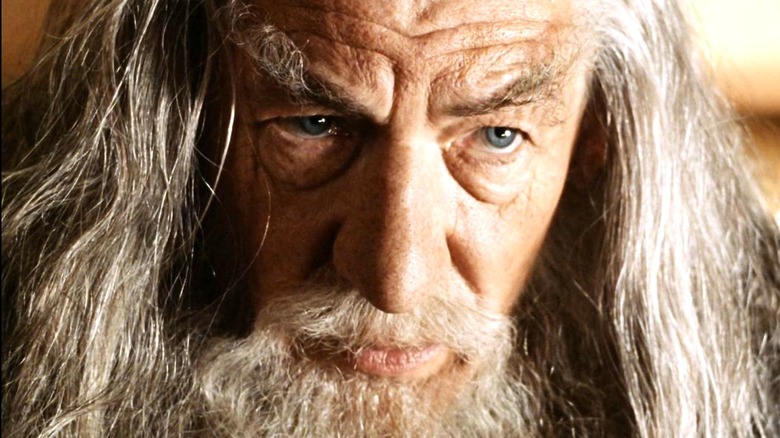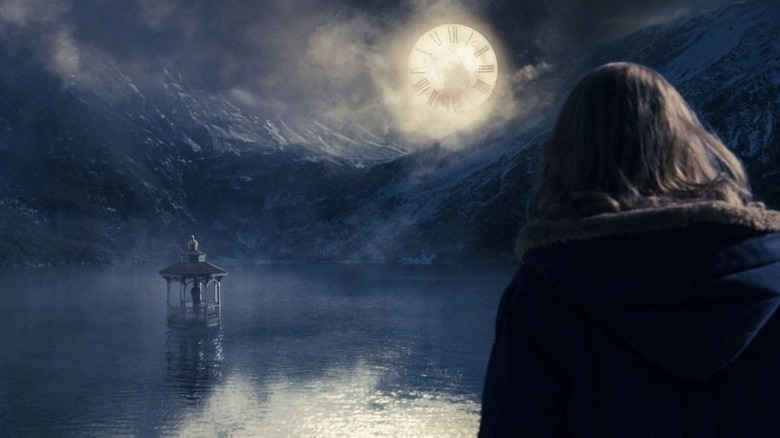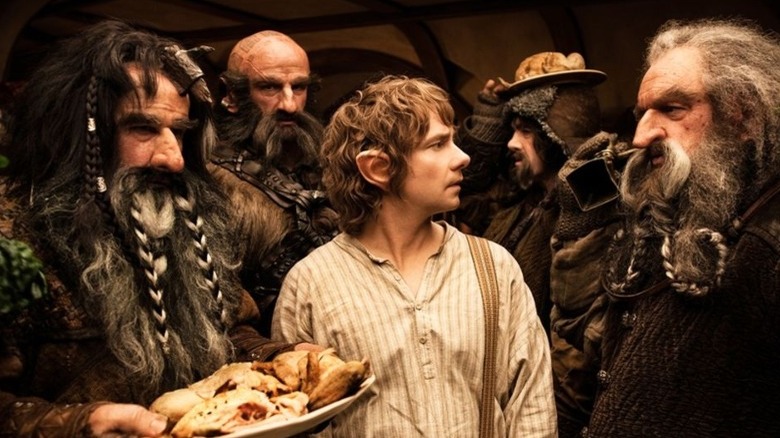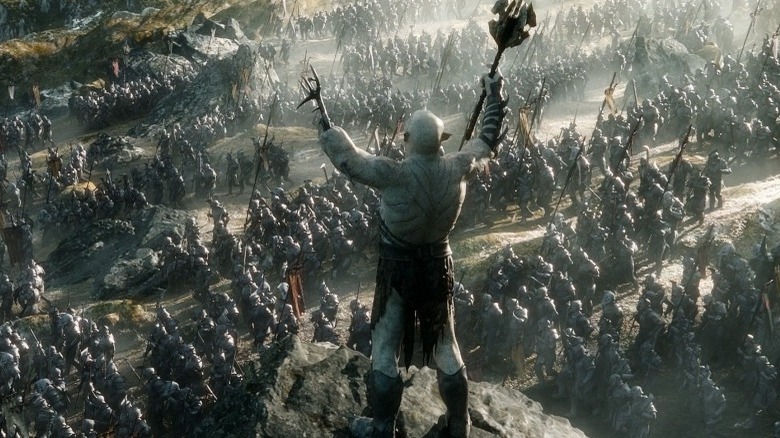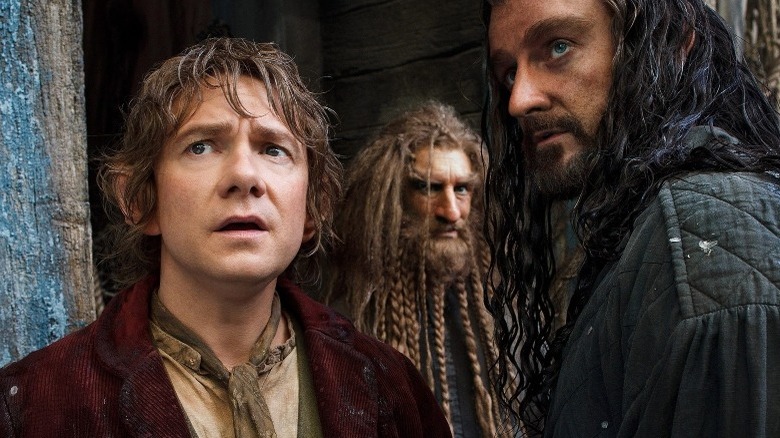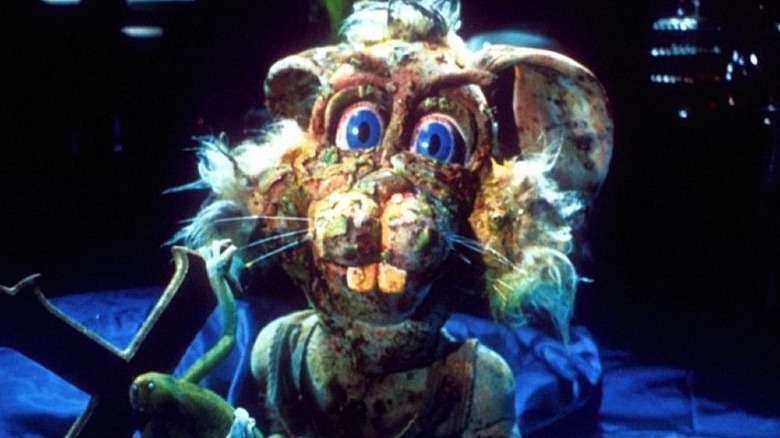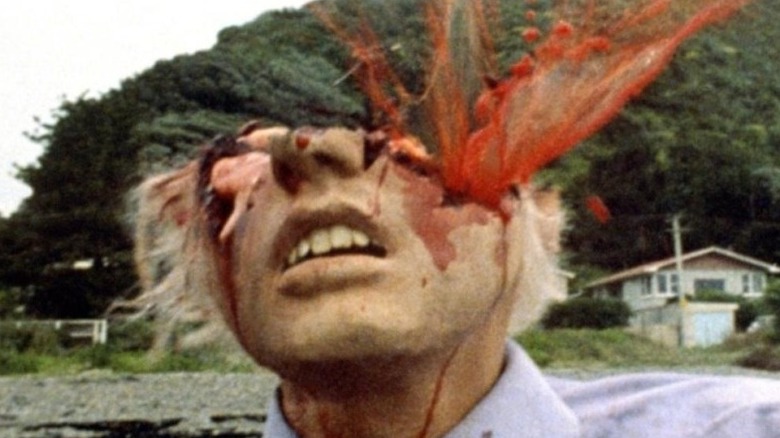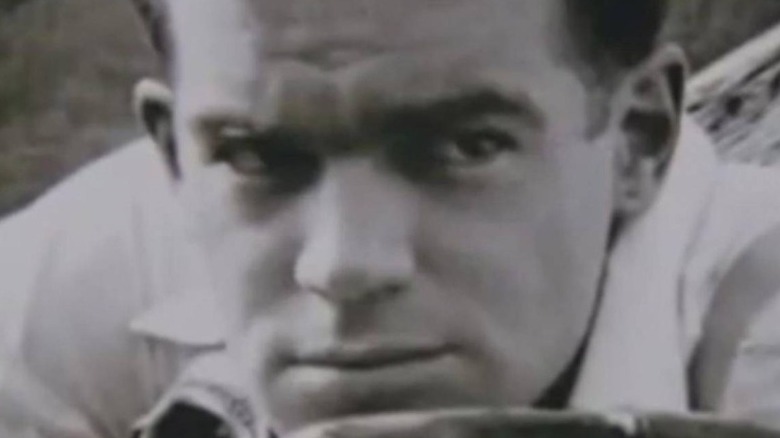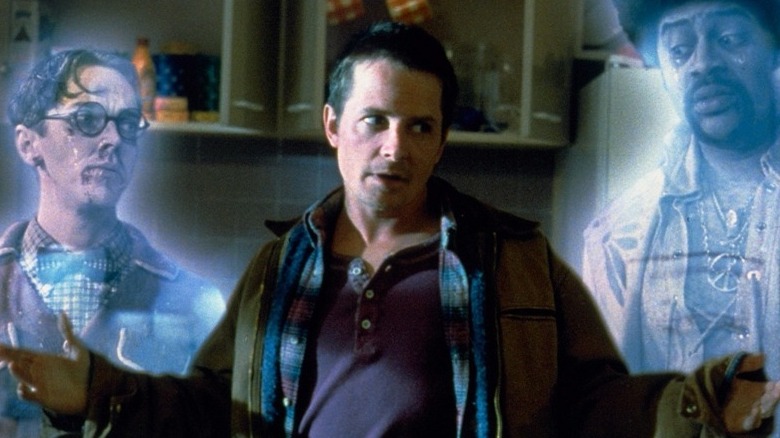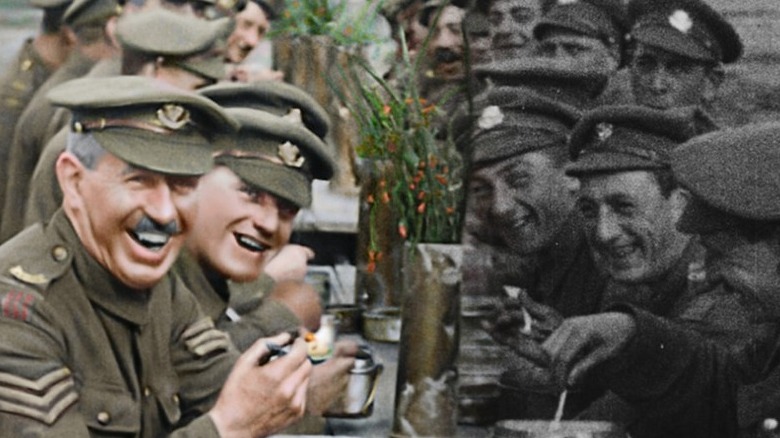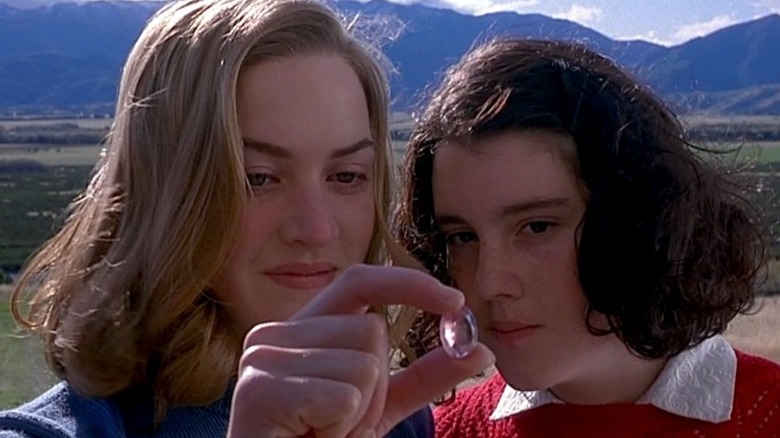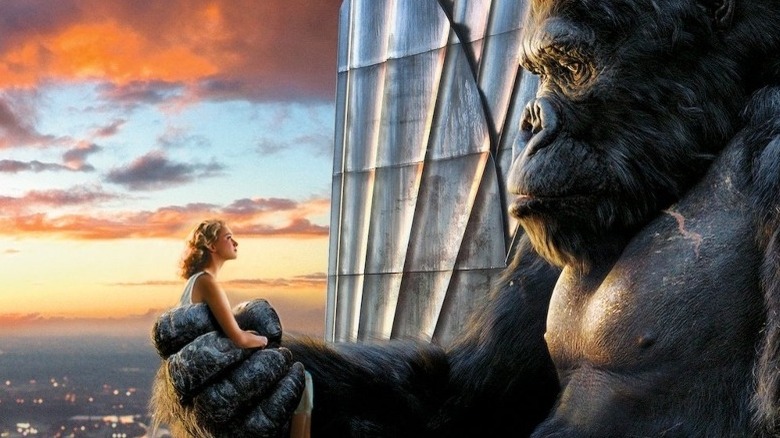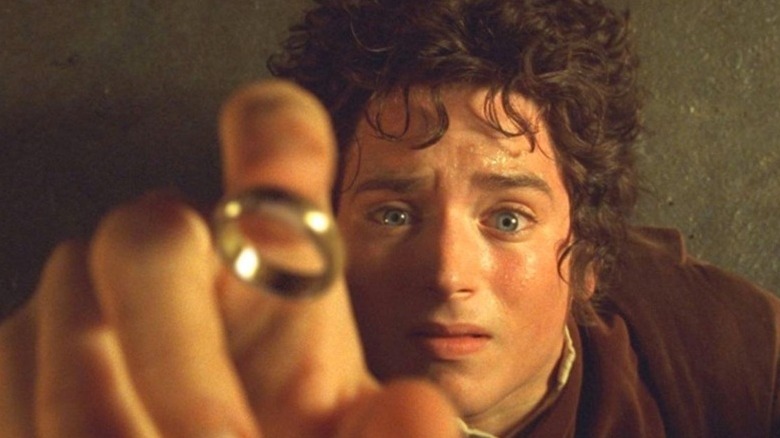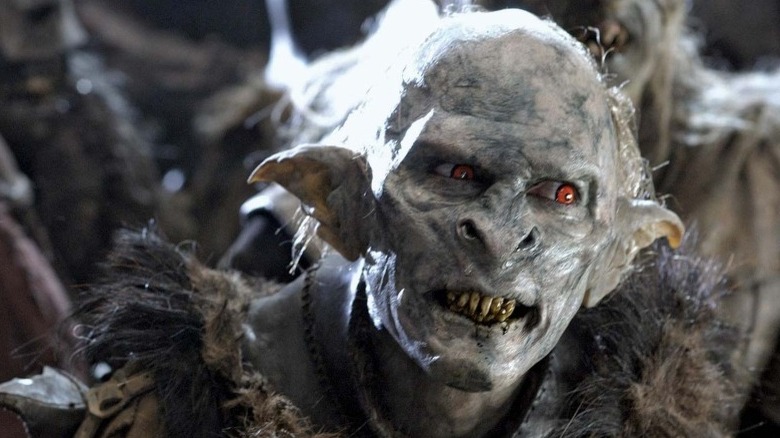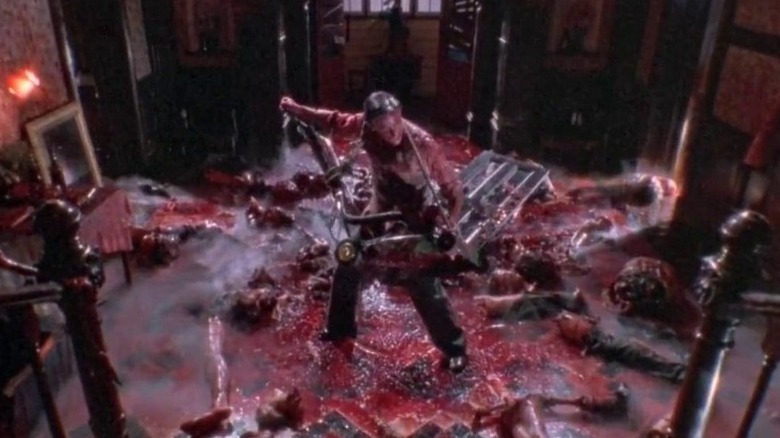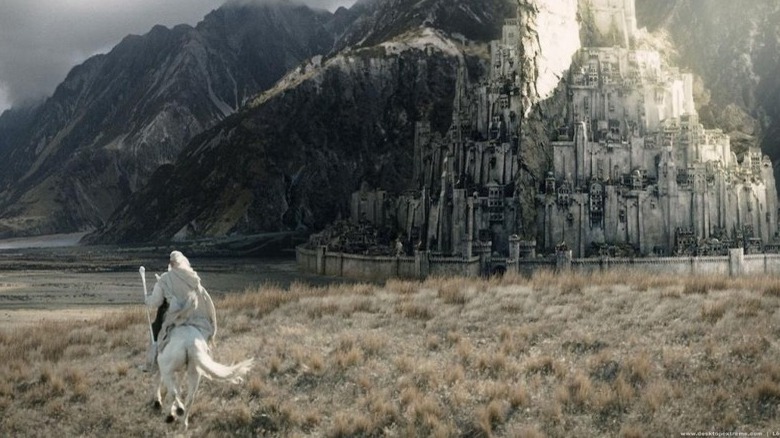Every Peter Jackson Film Ranked From Worst To Best
Peter Jackson is a filmmaker whose career seems to align with James Cameron's. I know, I know. Let me explain. Both directors revealed an early interest in special effects by making terrific little genre films that still hold up decades later. Both went on to deliver some modern classics, then saw their later years lost to big-budget fantasy and sci-fi franchises that few people seem to be excited about.
Cameron hasn't directed a feature film since 2009. Jackson hasn't helmed a non-Hobbit feature since 2009. I'm not here to tell them what to do with their time, but come on. Imagine the cool movies we could have had from these two if they hadn't spent the last decade tweaking pixels and rolling in piles of cash.
I'm not bitter, though. While Cameron may be a lost cause, Jackson has happily moved on from his franchise woes. The future is his again. Hopefully, that means we have some non-blockbuster genre thrills heading our way. For now, at least, we have the 15 films he's already made — so let's rank 'em!
15. The Lovely Bones
Look, here's the thing. We all know that a ranked list is a subjective thing. That said, anyone who tells you that "The Lovely Bones" isn't Jackson's worst film is lying to you. Like the next few films on this list, it combines attractive visuals with absolute tedium, but unlike the soul-sucking "Hobbit" trilogy, "The Lovely Bones" is also a tonal misfire that offends in its cloying sentimentality and insulting messages.
Saoirse Ronan does good work as the murdered teen, but her arc feels far removed from a story about a child-killing psychopath. After spending what feels like hours in the dead girl's "perfect" afterlife, with some minor suspense beats unfolding back on Earth, the film ends on some dubious notes.
There is no justice and no closure — we're meant to be content knowing that little Susie manages to break through her immortal coil for the sole purpose of snagging a kiss (via someone else's body) with a horned-up teenage boy. Her body is never found, her family will never heal, the killer is never caught, and we're meant to celebrate that a bunch of murdered kids get to play in Heaven for eternity. It's just the worst.
14. The Hobbit: An Unexpected Journey
While the three novels that make up "The Lord of the Rings" total over 1,500 pages, J.R.R. Tolkien's "The Hobbit" barely passes 300. Spreading that simple tale across its own trilogy of films was a decision made by executives and bean counters, not creatives, and it shows in the finished product. "An Unexpected Journey" is nearly three hours long, which is enough time to tell the whole tale. Instead, Jackson must stretch out even the most mundane of moments into eternity.
The opening dinner party alone takes up what feels like half the film, unfolding in real-time as it delivers an endless stream of pratfalls. A later scene involving trolls, one that occupies a mere two pages in Tolkien's novel, is fueled by flatulence rather than character or narrative. Jackson and friends bring the expected technical polish to the film (unless you were unfortunate enough to watch the movie at 48 frames per second, in which case it felt like a British television drama aimed at stodgy adults and fart-loving kids), but there's far too little here to justify its length.
13. The Hobbit: The Battle of the Five Armies
After opening with what should have been the previous film's conclusion, Jackson's concluding chapter of "The Hobbit" finds itself juggling a few too many threads, losing focus in the process. One plot involving a dwarf named Thorin takes up far too much time for a trilogy named after a hobbit. Worse, it feels like a pale reflection of the journey already being undertaken by Bilbo. Greed, ownership, and dark feelings magnified by magic objects is well-covered terrain in Middle-earth, but we're forced to endure it all again to keep this trilogy moving.
"The Battle of Five Armies" fails to maintain its own identity. The best trilogies manage to tell an overarching story while still allowing each individual movie to feel complete in its own way. Instead, "The Battle of Five Armies" tries to check off boxes in-between battles and boredom. The action beats foreshadowed by title at least deliver some thrills. They're lacking in personality, but as the third act transforms into one big fight sequence, it successfully ends "The Hobbit" on the most minor of highs.
12. The Hobbit: The Desolation of Smaug
As with "The Two Towers," "The Desolation of Smaug" is a middle entry, offering neither setup nor closure. Unlike "The Two Towers," though, "The Desolation of Smaug" is unable to deliver smaller narrative beats of its own. Not even the story note revealed in its title finds purchase here — the dragon's miserable destruction is saved for the following movie. False advertising!
However, Jackson is too good of a filmmaker for any of his films to be complete failures, and "The Desolation of Smaug" doesn't skimp on action set pieces. From a creepy attack by giant spiders to a game of hide and seek with Smaug, the action beats thrill and delight between long stretches of chatter. The highlight is a sequence that sees Bilbo and friends chased by orcs down a rapidly moving river. It's exciting and fun in ways the rest of the trilogy isn't. Unfortunately, it's followed by hours of dull meandering.
11. Meet the Feebles
Every movie from this point forward is at least good, if not great. And yes, that includes "Meet the Feebles," Peter Jackson's crass, cruel, and carnage-filled puppet movie. What starts as a low-budget riff on "The Muppet Show" becomes a darkly comic peek behind the felt as betrayal, drug addiction, infidelity, and more unfold offstage — only to spill violently onto the stage itself during the bloody climax.
"Meet the Feebles" is an all-puppet experience, and it's as of a scathing behind-the-scenes expose as you've ever seen. Sex, drugs, Vietnam flashbacks, gangsters, porno shoots, a tabloid reporter played by fecal-funneling fly; there's a lot going on here, and I haven't even mentioned the elephant who's being sued for child support by a chicken, or the love story that unfolds between a hedgehog and a poodle. Oh, and it's a musical — a rousing song called "Sodomy" will stick in your head for weeks. Andrew Lloyd Webber, eat your heart out.
10. Bad Taste
Jackson's debut film remains one hell of a career opener, even if it is a cheap horror comedy about alien invaders who turn a small town's residents into a buffet. Jackson's first feature, shot on 16mm film, is the work of a filmmaker who refuses to let the lack of a budget equal a lack of ambition. "Bad Taste" is full of impressive stunts, creative and gory practical effects, and a fast-moving sense of humor.
Filmed over four years with funds gathered from friends, family, and the New Zealand Film Commission, "Bad Taste" is a scrappy indie that sits proudly alongside Sam Raimi's "The Evil Dead." Limbs are lopped off, brains leak from head wounds, and one alien's death by chainsaw leaves you feeling like you've been born again. The film ends with Derek — an ornery, wise-cracking, brain-injured Jackson — piloting a spaceship towards the alien planet, taking the fight to the invaders. I'm still waiting for that sequel, Mr. Jackson!
9. Forgotten Silver
While Jackson would be showered with praise for another documentary 23 years later, this little seen slice of "non-fiction" is equally deserving of your time and attention. "Forgotten Silver" tells the story of Colin McKenzie, a forgotten filmmaker from New Zealand who revolutionized the art of cinema years before others came along and took credit for the techniques and advancements that McKenzie pioneered.
Of course, it's all a clever ruse, and while it fooled (and upset) television viewers in New Zealand when it first aired, "Forgotten Silver" remains a fantastic piece of cinematic appreciation. Jackson recreates fake movie footage in the exact style and format of the period, resulting in some very convincing sequences, and he sells it with the help of talking heads that include himself, "Jurassic Park" star Sam Neill, and esteemed critic Leonard Maltin.
8. The Frighteners
In the MPAA's long history of screwing over films, "The Frighteners" stands as one of its more unsung victims. The film industry's self-appointed arbiters of good taste slapped Jackson's first big-budget Hollywood film with an R-rating, despite that it's more like "Ghostbusters" than a horror movie, and "The Frighteners" paid the price at the box office. It's a darn shame, as Jackson and his cast and crew deliver something fun, frenetic, and highly entertaining with this supernatural comedy.
Michael J. Fox takes the lead as a widower who can see ghosts, a gift he uses to con people as a faux exorcist. However, his scheme falls apart when an undead serial killer starts slashing his way through a small town's populace. "The Frighteners" is a fast-moving supernatural romp with sharp digital effects courtesy of Weta, and as Fox's last (non-animated) lead role, there's something bittersweet about it, too. Also — and this can't be understated — as a deranged FBI agent, Jeffrey Combs gives one of the funniest supporting performances the genre's ever seen.
7. They Shall Not Grow Old
Jackson's first documentary, "They Shall Not Grow Old," follows his faux-doc "Forgotten Silver" and predates his mini-series documentary "The Beatles: Get Back," and is dedicated to his grandfather and other veterans of the first World War. It's less interested in telling a story or focusing on a single event from the war, and is envisioned more as an immersive experience that brings viewers as close as possible to moments that unfolded both on and off the battlefield.
While controversial, Jackson uses actual historical footage that he's tweaked, altered, and imbued with new life. The raw film is a century old, but technology and an artist's touch give it lifelike color and depth, as well as newly recorded "dialogue" that makes viewers witnesses to all of the camaraderie, fear, valor, and heartbreak. The modernization is sure to turn off purists, but for everyone else "They Shall Not Grow Old" brings an immediate warmth and personality to images that otherwise feel a world away.
6. Heavenly Creatures
After his trio of low-budget genre films found only minor traction as cult favorites, Jackson's fourth movie pushed him in a more serious direction. "Heavenly Creatures" also introduced the world to two major acting talents in Melanie Lynskey and Kate Winslet, who play teenagers who bond over a shared dislike for their parents. When their time together is threatened, tragedy results.
The direction, writing, and performances make "Heavenly Creatures" a compelling film, one that finds unexpected freshness in the girls' rich fantasy life. Jackson brings their imagined world to the screen in creative fashion, pairing it well with their more mundane realities. The drama and the weight of the film's violence showed a more professional side of Jackson's talents. Also of note: "Heavenly Creatures" is based on a true story, and one of the two girls involved (specifically, Juliet Hume, played by Winslet) grew up to be a best-selling mystery writer.
5. King Kong
It's difficult not to respect Jackson's big-budget retelling of one of cinema's greatest monster movies — his love for the beast and its tragedy are clear throughout. Kong has always been the victim of his story, and Jackson gives the big guy room to breathe — a little too much room, according to some, although the three-hour runtime feels exactly right for a story and character as oversized as Kong.
The spectacle in "King Kong" is off the charts, with spectacular visual effects bringing Kong and his island to glorious life. Credit Weta and the great Andy Serkis for giving the creature life and personality well beyond what men in costumes and CG monsters typically achieve. Just as impressive? Jackson and his cast ensure the human characters are engaging on their own merits, meaning that their stories rarely feel like filler. This is the kind of epic filmmaking that we just don't see anymore.
4. The Lord of the Rings: The Fellowship of the Ring
It can't be overstated how much of a gamble it was to not only produce a trilogy based on J.R.R. Tolkien's masterpiece, but also to hand the reins to Peter Jackson. He had only directed a single studio effort before this, and it bombed in theaters. And yet, Jackson and his partner, Fran Walsh, had a vision of something unprecedented, and "The Fellowship of the Ring" proved they could pull it off in grand fashion.
With a nearly three-hour runtime — even longer in the extended edition — Jackson, Walsh, and an enormous cast and crew bring the first novel in Tolkien's trilogy to beautiful, thrilling, emotional life. Elijah Wood headlines the massive ensemble as Frodo, and he remains the film's beating heart, but the rest of the cast is equally committed to the journey. There's an unexpected sincerity to the production — Jackson's "The Lord of the Rings" is as confident in its sentimentality as it is in its swashbuckling, fantasy action. While many filmmakers would have focused on the highlights, Jackson and friends embrace the entirety of Tolkien's creation, resulting in an experience that both honors the literature and injects a freshness that welcomes newcomers to world of Middle-earth.
3. The Lord of the Rings: The Two Towers
Middle films in trilogies have both the best and worst of it. They don't have to waste time setting up story or characters, but they also don't get to deliver much in the way of closure. What they do have time for, though, are big swings, epic set pieces, and endless excitement. The final hour of "The Two Towers" is practically non-stop in its action, as orcs and humans fight it out during the Battle of Helm's Deep.
One of the strengths of this middle chapter is how well it spreads the love between its players. While "The Fellowship of the Ring" introduced its characters only to separate them, "The Two Towers" focuses on three main threads, giving meaningful time to seemingly lesser characters. Merry and Pippin come into their own here, and the main battle rages without a single hobbit in sight. None of it feels like filler; every character carries their own weight, highlighting how even the smallest piece of a story has value. Sam and Frodo, meanwhile, avoid the bombast and instead stay on the move, landing some emotional beats of their own and taking the film out on a high.
2. Dead Alive
Some might take umbrage with placing a "mere" horror-comedy higher on this list than two of Jackson's "Lord of the Rings" films, but come on. "Dead Alive" remains an absolute banger of a good time and the film that made Jackson a horror legend. From Sumatran rat monkeys to undead toddlers, "Dead Alive" offers a boundless display of monstrous fun and unforgettable practical gore effects.
A timid mama's boy is charged with protecting his slowly rotting mother — and the people she wants to eat — and things spiral out of control in wildly unexpected ways. Ears are chewed, a priest kicks ass for the Lord, limbs are lopped off, and the set pieces grow increasingly grotesque and bloody, culminating in a gloriously unhinged lawnmower massacre that remains one of the bloodiest — if not the bloodiest — scene ever captured on film.
1. The Lord of the Rings: The Return of the King
At a whopping 200 minutes — and that's still a full hour shorter than the extended cut — "The Return of the King" isn't exactly a movie you throw on for casual rewatches. What it is, though, is a masterpiece, as well as a masterclass in how to wrap up an epic trilogy. Awards aren't everything, but "The Return of the King" won 11 Academy Awards across multiple categories — that's still the record for most Oscars awarded to a single film — highlighting just how well-respected it was by Jackson's filmmaking peers. Audiences were equally enamored, and that love continues nearly two decades after its release.
The three threads of the previous film are cut down to two as Frodo and Sam march towards Mount Doom while the rest of the fellowship gathers for a final fight against Sauron's army of uglies. Both halves bear dramatic weight, one intimate and the other grand, and both story and characters alike get worthy conclusions. As with the first two films, "The Return of the King" works as both a piece of blockbuster cinema and a beautifully told tale of friendship, honor, and the battle between good and evil.
